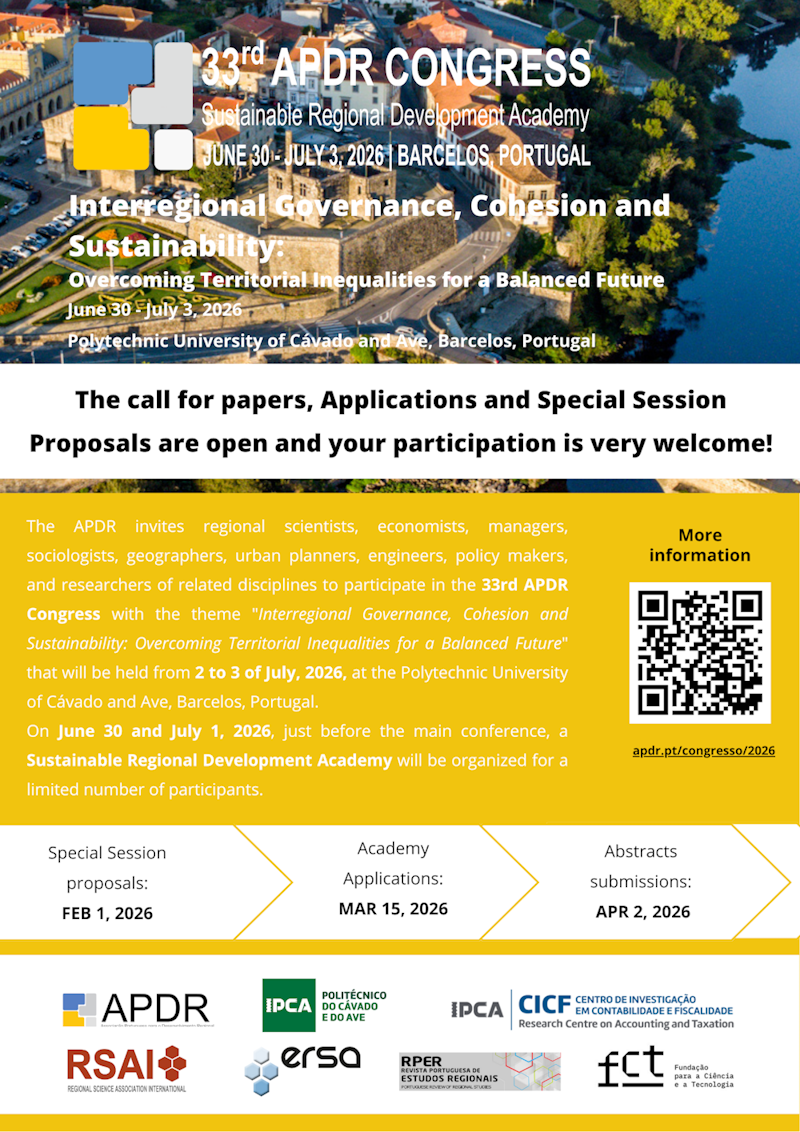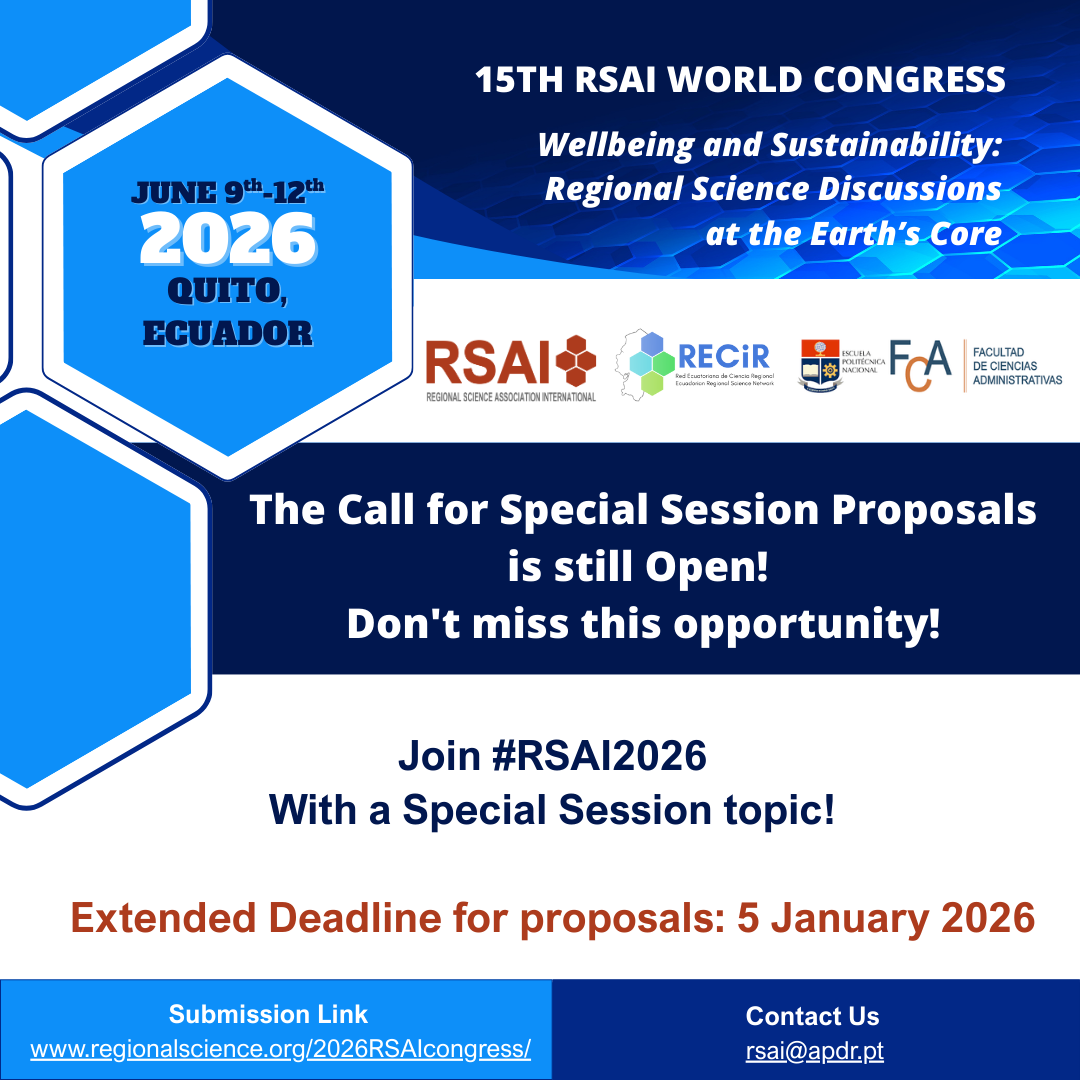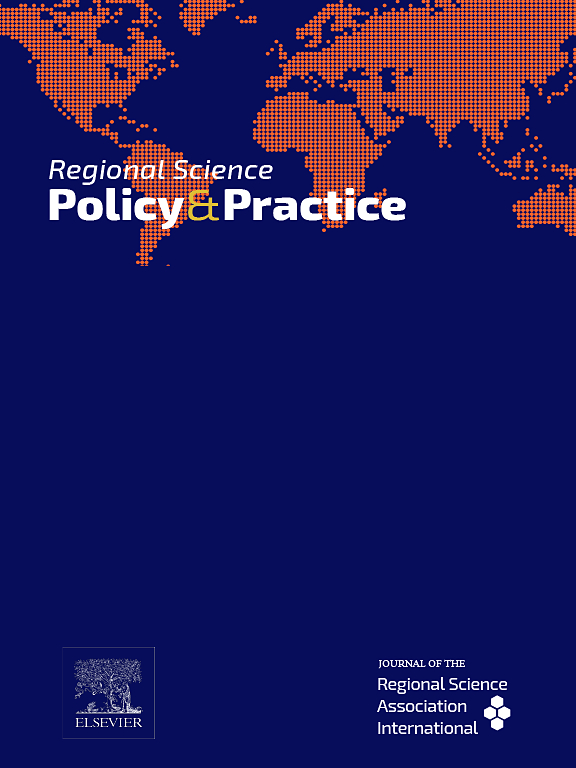The APDR invites regional scientists, economists, managers, sociologists, geographers, urban planners, engineers, policy makers, and researchers of related disciplines to participate in the 33rd APDR Congress with the theme "Interregional Governance, Cohesion and Sustainability: Overcoming Territorial Inequalities for a Balanced Future" that will be held from 2 to 3 of July, 2026, at the Polytechnic University of Cávado and Ave, Barcelos, Portugal. On June 30 and July 1, 2026, just before the main conference, a Sustainable Regional Development Academy will be organized for a limited number of participants.
The theme “Interregional Governance, Cohesion and Sustainability: Overcoming Territorial Inequalities for a Balanced Future” underscores the growing importance of collaborative frameworks that promote equitable and sustainable development across regions. In the face of persistent territorial disparities, effective interregional governance emerges as a key mechanism for fostering cohesion, resilience, and shared prosperity. By integrating economic, environmental, social, and cultural dimensions, this approach seeks to ensure that sustainability is achieved not only within individual regions but also across territorial boundaries, paving the way toward a more balanced and inclusive future.
The call for papers and Special Session Proposals is open, and your participation is very welcome!
Deadline for Special Session proposals: February 1, 2026. Proposals should be sent by email to the Congress secretariat (This email address is being protected from spambots. You need JavaScript enabled to view it.).
Deadline for Abstracts submissions: April 2, 2026. Authors should submit their abstracts through the online submission system by following the link https://cmt3.research.microsoft.com/APDR2026
Deadline for Academy Applications: March 15, 2026.
All information available at the congress website: https://apdr.pt/congresso/2026/index.html
Looking forward to hosting you in Barcelos, Portugal!
The Organizing Committee and the Board of APDR
33rd APDR Congress






